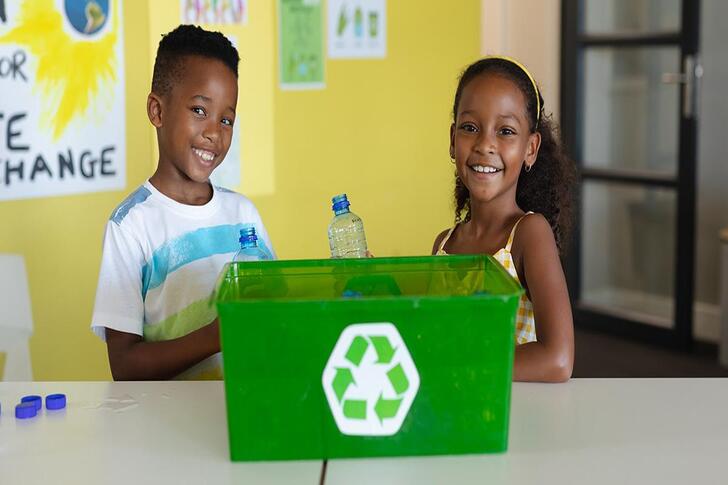Embracing Eco-Friendly Products and Practices
Adopting eco-friendly products and practices is essential for promoting environmental sustainability and reducing our carbon footprint. From reducing waste to conserving resources, small changes in our daily habits can have a significant impact on the planet.
1Organic and Local Food
0 votes

Choosing organic and locally-sourced food supports sustainable agriculture and reduces your carbon footprint. Organic farming practices avoid the use of synthetic pesticides and fertilizers, promoting soil health and biodiversity. Local food, often available at farmers’ markets, reduces the energy and emissions associated with long-distance transportation. Additionally, supporting local farmers strengthens the local economy and fosters a sense of community. Incorporating more organic and local food into your diet can enhance your health and well-being while also contributing to environmental sustainability.
0
Do you agree? 0% of people agree with your point of view!
2Renewable Energy Solutions
0 votes

Transitioning to renewable energy sources, such as solar, wind, and hydro power, is crucial for reducing dependence on fossil fuels and mitigating climate change. Homeowners can invest in solar panels to generate clean energy and reduce electricity costs. Additionally, supporting community renewable energy projects and advocating for policy changes can help increase the adoption of renewable energy at a larger scale. Utilizing renewable energy solutions not only lowers greenhouse gas emissions but also promotes energy independence and sustainability. By embracing renewable energy, you contribute to a cleaner and more resilient energy future.
0
Do you agree? 0% of people agree with your point of view!
3Sustainable Home Cleaning Products
0 votes

Traditional cleaning products often contain harmful chemicals that can pollute indoor air and waterways. Sustainable home cleaning products, on the other hand, use natural and non-toxic ingredients that are safer for both the environment and human health. Options include biodegradable detergents, plant-based cleaners, and homemade solutions using vinegar, baking soda, and essential oils. These eco-friendly alternatives effectively clean and disinfect surfaces without leaving harmful residues. By switching to sustainable cleaning products, you can reduce your household’s environmental impact and create a healthier living environment for your family.
0
Do you agree? 0% of people agree with your point of view!
4Eco-Friendly Fashion
0 votes

The fashion industry is a significant contributor to environmental pollution, but eco-friendly fashion offers a sustainable alternative. This includes clothing made from organic or recycled materials, as well as items produced through ethical manufacturing processes. Brands that prioritize sustainability often use environmentally-friendly dyes, reduce water usage, and ensure fair labor practices. Additionally, buying second-hand clothing and participating in clothing swaps can help reduce waste and promote a circular economy. By choosing eco-friendly fashion, you can reduce your environmental impact and support a more sustainable and ethical industry.
0
Do you agree? 0% of people agree with your point of view!
5Zero-Waste Lifestyle
0 votes

Embracing a zero-waste lifestyle involves minimizing waste and maximizing recycling and composting efforts. This can be achieved by using reusable items such as cloth bags, stainless steel water bottles, and glass containers instead of single-use plastics. Composting organic waste and recycling materials like paper, glass, and metal can significantly reduce the amount of waste sent to landfills. Additionally, buying products with minimal packaging and supporting companies that prioritize sustainability can further promote a zero-waste lifestyle. By adopting these practices, you can play a crucial role in reducing environmental pollution and conserving natural resources.
0
Do you agree? 0% of people agree with your point of view!
6Energy-Efficient Appliances
0 votes

Energy-efficient appliances are designed to use less electricity and water, reducing your utility bills and environmental footprint. When shopping for appliances like refrigerators, washing machines, and dishwashers, look for the Energy Star label, which indicates that the product meets energy efficiency standards set by the Environmental Protection Agency. Additionally, consider upgrading to LED lighting and smart thermostats to further conserve energy. Using energy-efficient appliances not only saves money but also helps reduce greenhouse gas emissions and conserves natural resources, contributing to a more sustainable future.
0
Do you agree? 0% of people agree with your point of view!







Recent Comments